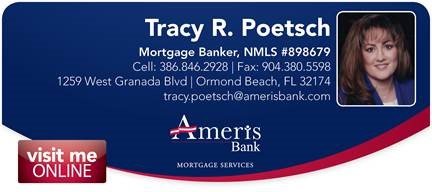Etiquette experts agree that giving someone a gift of cash for a birthday, graduation, or wedding celebration is commonplace. But, did you know that it’s also common to receive a gift of cash for a down payment on a home? In fact, in 2017, the National Association of Realtors Profile of Homebuyers and Sellers estimates that 25% of first time homebuyers used gift funds for their down  payments. Receiving cash for a birthday or graduation gift may only require a thank you note, but for a mortgage, there is a little more paperwork involved.
payments. Receiving cash for a birthday or graduation gift may only require a thank you note, but for a mortgage, there is a little more paperwork involved.
Who can give:
Anyone can give you cash for your birthday. However, gift funds for mortgages have more specific rules on who it can come from. Most loans allow gift funds to come from immediate family members such as parents, siblings, spouses, and domestic partners. Close extended family such as grandparents, aunts, and uncles are also acceptable. The donor must give with the expectation that they are a gift that will not be paid back.
How much they can give:
The amount of the gift funds you can receive will vary based on loan type and sometimes credit score. For example, for conventional loans, if you are putting down more than 20%, all of your down payment can be gifted. If it’s less than 20%, then a portion of the down payment must come from your own funds.
With FHA loans, all of your down payment can be gifted unless your credit score is below 620. If your credit score is below 620, 3.5% of your down payment must come from your own funds. The gift funds received can be used towards additional down payment or closing costs.
As a side note, tax law restricts how much money can be gifted to a family member per year tax free. Be sure to check with an accountant to see what current law allows.
Documenting the gift:
When giving gift funds for a mortgage, the lender is going to require a gift letter. This letter typically includes donor name, relationship to the borrower, date and amount given, and proof it was received. The lender may also require bank statements from the donor depending on loan type. The reason for this is that the lender must be sure the donor has the ability to give the gift.
What if my donor does not want to provide bank statements?
Understandably, some family members are uncomfortable sharing their financial information with other family members. Conventional loans allow the donor to wire the gift funds at closing and thus negate the need for bank statements. Another alternative is to receive gift funds from your donor as early as possible in your home search process. When a borrower begins the loan process they must provide the previous 2 months bank statements. Any funds that are already in the account at that time are considered “seasoned” and would not require additional documentation.
Since gift fund rules vary depending on loan type, it’s best to consult a mortgage professional to assist you with the specific guidelines and documentation required by you and your donor. This will help ensure a smooth loan process and closing. After closing, don’t forget that thank you note and maybe even a dinner invitation at the your new home for your generous donor.
 The information voiced in this material is for general information and is not intended to provide specific advice or recommendations for any individual.
The information voiced in this material is for general information and is not intended to provide specific advice or recommendations for any individual.
All loans subject to credit approval.










